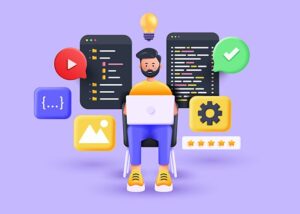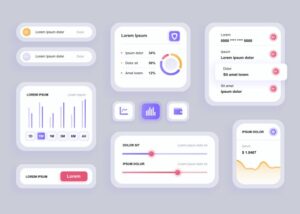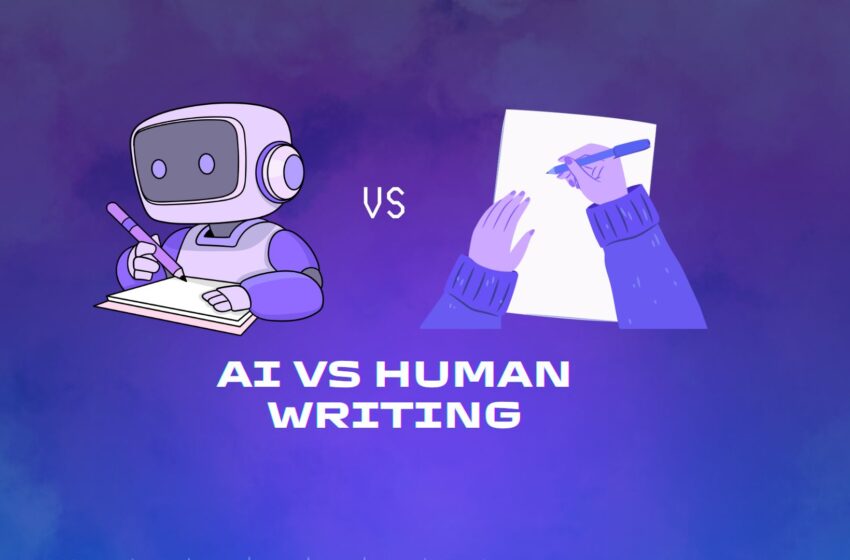Last week, I played a little game with my teenage niece. I showed her two essays about climate change—one written by a human, one by ChatGPT. Her confident response? “Oh, this one’s obviously the AI. It’s too… perfect.”
She was wrong. Dead wrong.
The “perfect” essay was written by her classmate. The AI-generated one was the slightly messier piece with a few awkward transitions. Her shock perfectly captures what’s happening right now in our digital world: we’re terrible at spotting AI writing, even when we think we’re good at it.
And frankly? That should worry all of us.
The Wake-Up Call: We’re Living in a Post-Truth Writing World
Here’s the uncomfortable truth nobody wants to admit: AI writing has gotten so good that distinguishing it from human writing has become nearly impossible. I’m not talking about obvious chatbot responses or robotic product descriptions. I’m talking about nuanced, engaging, personality-filled content that would fool your high school English teacher.
When I first started experimenting with ChatGPT in early 2023, the outputs were impressive but obviously artificial. Fast-forward to today, and I regularly find myself second-guessing whether articles I’m reading were written by humans or AI. The improvement curve has been absolutely mind-boggling.
My Personal “Aha” Moment
Three months ago, I conducted my own little experiment. I asked ten of my writer friends—people who’ve been crafting words professionally for years—to identify which of six articles were AI-generated. The results were humbling:
- Average accuracy: 43%
- One friend got 5 out of 6 wrong
- Even the “obvious” AI piece fooled half the group
That’s when it hit me: if professional writers can’t tell the difference, what hope do the rest of us have?
The Science Behind Our Confusion

Unsplash image by Bhautik Patel
Recent research backs up my informal experiment in ways that are frankly alarming. Studies from 2024 show that even experts—people trained specifically to spot AI content—are wrong more often than they’re right. We’re talking about a success rate that’s worse than flipping a coin.
But here’s what really blew my mind: when researchers had AI write academic essays and then asked professors to grade them alongside human-written work, the AI essays consistently scored higher. Not just comparable—higher. ChatGPT isn’t just mimicking human writing; in many cases, it’s surpassing it.
Why Our Brains Fail at This Task
There’s a psychological reason we’re so bad at this. Our brains are pattern-matching machines, but AI has learned to mimic the exact patterns we associate with “good writing.” When we see well-structured paragraphs, smooth transitions, and error-free grammar, we assume it’s the work of a skilled human writer.
The irony? Those “perfect” qualities are often the biggest red flags that something was written by AI.
What I’ve Learned About Spotting the Differences
After months of playing this detection game, I’ve noticed some subtle patterns. But I’ll be honest—these aren’t foolproof, and AI is getting better at hiding these tells every day.
The “Too Good to Be True” Problem
The first thing that makes me suspicious is perfection. Human writing has quirks:
- We start sentences with “And” or “But” sometimes (like I just did)
- We go off on tangents that don’t quite fit
- We make small grammar mistakes that we don’t catch
- We have bad days where our writing feels flat
AI writing often lacks these human imperfections. It’s consistently good in a way that actual humans rarely are, especially when writing under deadline pressure.
The Personal Experience Test
Here’s my favorite trick: I look for specific, personal details. AI can tell you about “a friend who struggled with anxiety,” but it can’t tell you about “my college roommate Sarah, who used to reorganize our entire dorm room at 2 AM whenever she was stressed about exams.”
Real humans drop these hyper-specific details without thinking about it. AI tends to stick to generic examples that could apply to anyone.
The Opinion Heat Check
AI has gotten much better at having opinions, but it still tends to hedge its bets. Human writers will say things like “This movie is absolute garbage and anyone who disagrees has questionable taste.” AI is more likely to say “While this film may not appeal to all viewers, some may find its unconventional approach challenging.”
See the difference? Humans commit to hot takes. AI tries to please everyone.
Where This Gets Really Scary
The implications of this detection crisis go way beyond academic curiosity. We’re talking about fundamental changes to how we consume and trust information.
The Education Nightmare
I talked to my friend Lisa, who teaches high school English. Her students are using AI for everything now—not just for research, but for entire assignments. The traditional essay is essentially dead as an assessment tool because she can’t tell which submissions are authentic.
“I’m not even sure what authentic means anymore,” she told me. “If a student uses AI to help organize their thoughts and then writes the essay themselves, is that cheating? What if they just use it for the introduction? Where’s the line?”
She’s started moving toward in-class, handwritten assignments, but she knows that’s just a temporary Band-Aid on a much bigger problem.
The Content Marketing Wild West
As someone who works in digital marketing, I see the other side of this coin daily. The internet is being flooded with AI-generated content. Blog posts, social media updates, email newsletters—much of what you read online now has at least some AI involvement.
Some of it’s obvious garbage, but increasingly, it’s not. I’ve seen AI-generated blog posts that are more engaging and informative than what many human writers produce. That’s simultaneously impressive and terrifying.
The Trust Erosion Problem
Here’s what keeps me up at night: if we can’t tell what’s human-written and what’s not, how do we maintain trust in written communication? When everything could potentially be AI-generated, does authorship lose all meaning?
The Detection Tool Reality Check
You’ve probably heard about AI detection tools like GPTZero, Originality.AI, and others. I’ve tested most of them extensively, and here’s the harsh truth: they’re unreliable at best.
I ran the same piece of human-written text through five different detectors and got results ranging from “definitely human” to “99% AI-generated.” These tools are essentially sophisticated guessing machines, and they’re often wrong.
The worst part? They produce false positives constantly. I’ve seen human writers get flagged as AI, which is causing real problems in schools and workplaces where these tools are being used to make important decisions.
What Actually Works for Detection
After all my testing and experimentation, here are the techniques that actually help me spot AI writing:
The Conversation Test
I imagine having a coffee conversation with the writer. Does the piece read like something someone would actually say out loud? AI writing often has this formal, essay-like quality that doesn’t match how humans naturally communicate.
The Mistake Hunt
I actively look for small imperfections: a slightly awkward phrase, a repeated word, a sentence that doesn’t quite flow. Paradoxically, these “flaws” often indicate human authorship.
The Depth Dive
I pay attention to how deeply the piece explores ideas. AI tends to stay at a surface level, hitting all the expected points without diving into the messy complexities that humans can’t help but notice.
The Voice Consistency Check
Human writers have off days. Their voice changes depending on their mood, energy level, and what’s happening in their life. AI maintains an eerily consistent voice that never wavers.
Where We Go From Here
I don’t think the solution is to panic or try to ban AI writing tools. That horse has left the barn, jumped the fence, and is running free in the next county. Instead, we need to adapt.
For Writers
If you’re a professional writer, your job isn’t disappearing—it’s evolving. Focus on developing the skills that AI can’t replicate:
- Deep subject matter expertise based on real experience
- Authentic personal voice that reflects your unique perspective
- The ability to conduct original research and interviews
- Cultural sensitivity and emotional intelligence
- Strategic thinking about audience and purpose
I’ve started being more intentionally human in my writing. I share more personal stories, take stronger stances, and embrace the imperfections that make my voice unique.
For Readers
Become a more sophisticated consumer of content. Ask yourself:
- Does this feel like it was written by someone with real experience?
- Are there specific, personal details that ring true?
- Does the writer take risks with their opinions?
- Can I sense a real personality behind the words?
For Everyone
We need to have honest conversations about disclosure. I’m starting to believe that content creators should be transparent about their use of AI tools—not because AI assistance is cheating, but because readers deserve to know.
The Plot Twist: Maybe That’s Okay
Here’s a controversial thought: maybe the fact that we can’t tell the difference isn’t entirely bad. If AI can produce writing that’s indistinguishable from human writing, and if that writing is helpful and valuable to readers, does the source really matter?
I’m not sure I have a definitive answer to that question. Part of me still believes there’s something special about human creativity and experience that can’t be replicated. But another part of me wonders if I’m clinging to outdated notions of authorship and authenticity.
What I do know is this: the world has changed, and we’re all figuring out the new rules together.
My Final Thoughts (Definitely Human-Written, I Promise)
The line between AI and human writing isn’t just blurring—it’s practically disappeared. As I write this conclusion, I’m acutely aware that future readers might wonder if these words came from my brain or an algorithm.
But here’s the thing: this piece contains my genuine confusion, my real experiments, and my honest concerns about where we’re headed. It includes stories from my actual life and conversations with real people I know. It reflects my voice, my personality, and my particular way of seeing this issue.
Whether readers can definitively identify those human elements or not, they’re there. And maybe that’s enough.
The future belongs to writers who can harness AI as a tool while maintaining their authentic human voice. The question isn’t whether you can tell the difference between AI and human writing—it’s whether you can create writing that’s undeniably, authentically you.
And if you can do that? Well, that’s something no algorithm can replicate. At least not yet.
What do you think? Could you tell this was written by a human? Leave a comment and let me know—I’m genuinely curious about your detective skills.







